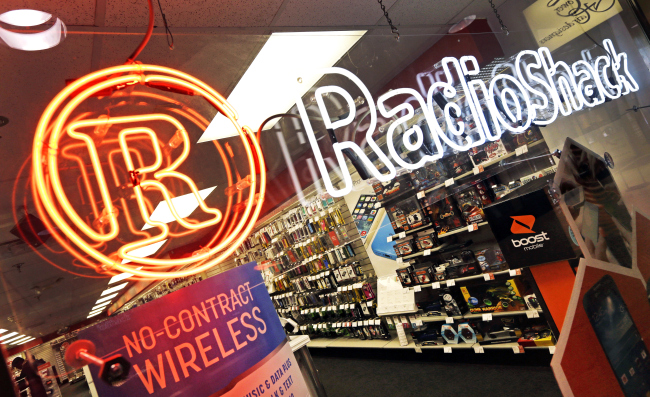Judge OKs settlement over dispute involving RadioShack gift cards

Wilmington, Del. • Electronics retailer RadioShack on Thursday won court approval of a settlement involving priority treatment of certain gift-card holders in the company's bankruptcy and has agreed to sweeten the deal for other cardholders.
Under the settlement approved Thursday by a Delaware bankruptcy judge, holders of roughly a third of the $46 million in outstanding gift cards will receive priority status and have claims paid in full.
But in a significant development reached shortly before the hearing, General Wireless, an affiliate of hedge fund Standard General that acquired the RadioShack trademark and more than 1,740 of the electronics retailer's stores after its bankruptcy filing, has agreed to honor all RadioShack gift cards for 50 percent of merchandise purchases.
That means gift card holders deemed as not having priority status under Thursday's settlement have an alternative to being left with only pennies on the dollar, if anything, as general unsecured creditors.
"They get the benefit they bargained for," said Cathy Hershcopf, an attorney representing RadioShack's official committee of unsecured creditors. "We think the settlement is a very, very generous settlement."
The update to the original settlement is still subject to court approval at a hearing next week on whether to confirm RadioShack's overall bankruptcy plan, but Judge Brendan Shannon described it as a "significant development and a positive one."
Meanwhile, Shannon refused to grant class-action status to a proposed class of individual gift-card holders who challenged the underlying settlement, which was negotiated with the attorneys general of several states, led by Texas.
"Having approved the settlement, I'm not satisfied that class certification is necessary," Shannon said, adding that the creditors committee and attorneys general can adequately represent the interests of gift-card holders.
Under the settlement approved Thursday, gift-card holders are divided into five categories based on the circumstances in which they obtained their cards. People who purchased cards for themselves or someone else have priority status for payment of claims, along with people who "reloaded" existing cards with more money. A small subset of people who hold cards that were issued between 2000 and 2004 and have since been "deactivated" also would be allowed priority claims. Holders of other cards, including promotional giveaways, and cards given in exchange for merchandise returns or in response to customer service complaints, are lumped in with general unsecured creditors.
However, under the proposed add-on to the settlement, all gift cards also would be honored at RadioShack stores, good for half of the purchase price of merchandise being bought. Thus, a holder of a $20 card could use it to cover $5 of a $10 purchase, but could redeem the full amount of the card for a purchase of $40 or more.
Attorneys said that's a significant improvement for nonpriority card holders, who as general unsecured creditors would at best recover only pennies on the dollar for their gift-card balances and would be subject to a $10 minimum recovery threshold. That means they likely would receive nothing at all unless the gift-card balance was between $500 and $1,000, said Clint Krislov, an attorney representing the purported class of individual gift-card holders.
"There's not a large amount of merchandise returns at that number," the judge noted.
While Krislov said the proposed change to the settlement was an improvement, he also argued that it means little if RadioShack does not take adequate steps to ensure that as many gift-card holders as possible receive proper notice of their rights.
RadioShack attorney Greg Gordon said the company has agreed to send email notices to all gift-card holders whose addresses are on file. Card holders also will be able to go to a website to learn about their rights, with the creditors committee and attorneys general overseeing the notice process to ensure that consumers are adequately informed.
Source: The Salt Lake Tribune and Randall Chase from The Associated Press
MEDIA CONTACT:
KATY LASEE | MARKETING DEPT.
651 554 8533
KRLasee@traveltags.com
TAGS:
card services,
legislation,
trends






